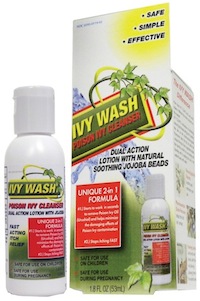DEAR DR. GOTT: A patient bit my niece at work while she and others were trying to restrain her. Afterward, my niece was asked when she had her last tetanus shot; she wasn’t sure. Rather than giving her a booster shot, she received antibiotics and dressings for the wound. A few weeks later, her fist began to clench and she had to place a ball in her hand to keep her nails from digging into her palm. She has severe pain in her arm and recently developed cellulitis. Workers’ compensation delayed treatment, and she is now classified as permanently disabled. Do you have any knowledge in this area that would help her try to regain the use of her arm?
DEAR READER: Tetanus, also known as “lockjaw,” is a serious condition caused by the bacteria Clostridium tetani. It is fairly rare, thanks to the vaccine, but about 1 million cases occur each year worldwide. Less developed countries, where vaccination rates are lowest, have the highest incidence rates.
Tetanus is treatable, but treatment isn’t always effective. Severe complications and death may still occur. Clostridium tetani can be found throughout the world in soil and in the intestines and feces of several common farm animals and pets, including cows, horses, cats, dogs, chickens, guinea pigs and more. Vaccinated adults can harbor the bacteria without becoming infected.
There are three different forms (based on clinical findings) of tetanus. The most common is generalized tetanus, which accounts for approximately 80 percent of all cases. Symptoms include spasms of the jaw, neck, chest, back and/or abdominal muscles, trismus (lockjaw), stiffness of the neck and abdominal muscles, difficulty swallowing and/or breathing, fever, sweating and more. In some instances, the spasms may become prolonged, causing sudden, powerful, painful contractions (called tetany), which can result in muscle tears and bone fractures.
Localized tetanus is uncommon. It causes persistent contractions of the muscles near the site of the initial injury. In some, it may precede generalized tetanus.
Cephalic tetanus is rare and occurs when tetanus bacteria enter the body from head trauma or otitis media (ear infection). It primarily affects the nerves of the face and head.
If your niece’s disability is truly the result of tetanus, she appears to have been lucky and only developed localized tetanus; however, why she was not given a booster shot is beyond me. According to the Centers for Disease Control (CDC), “Persons with wounds that are neither clean nor minor, and who have had 0-2 prior doses of tetanus toxoid or have an uncertain history of prior doses should receive TIG as well as Td or Tdap.”
That said, tetanus infection is rare in the United States. It may be that her injury and the resulting disability are unrelated to tetanus. How severe was the wound? Were any nerves, ligaments or tendons damaged? What testing has your niece undergone? Has she had any imaging studies to determine whether there is a tear, cyst or other anomaly that may be causing her symptoms?
Cellulitis is a common yet potentially serious skin infection that typically affects the skin surface but can also affect the underlying layers. When this occurs, the infection may spread to the bloodstream (sepsis) and lymph nodes.
Symptoms include pain, warmth, swelling, tenderness and redness of the affected area. Fever may also be present. Treatment is with antibiotics.
Now to the main issue, your niece’s limited hand mobility. Based on your note and the classification of “permanently disabled,” I assume that at least six months have passed since the initial injury, during which she failed to show any improvement. I am not sure, at this point, what, if anything, will restore the use of her hand, but she may be able to regain some function. I suggest that she speak to her physician about physical and/or occupational therapy. Physical therapy will work to regain some mobility and strength back into the muscles, and occupational therapy will focus on retraining the muscles to perform everyday tasks. Beyond that, she will also likely learn some exercise techniques and stretching that may prevent further loss of use and reduce pain.
Once the cellulitis has been successfully treated, she may also wish to try acupressure, acupuncture or massage in an attempt to reduce pain. Over-the-counter pain relievers such as ibuprofen or naproxen may be beneficial. If not, she can speak to her doctor about non-narcotic prescription pain relief.
Your niece has a long road ahead of her, and a positive outcome isn’t guaranteed; however, she can learn to cope and continue to lead a positive, fulfilling life.


